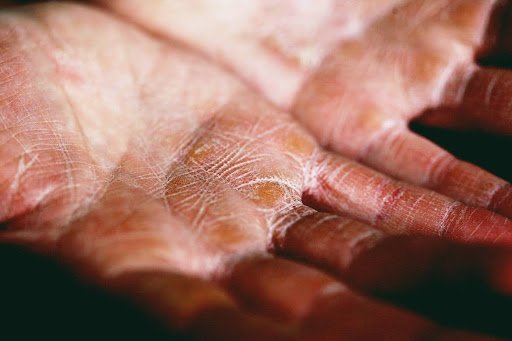With the sun ever shining bright in Florida, it’s no surprise that residents tend to face dermatological problems from time to time. Of course, we aren’t saying that sunlight is bad. It’s just that people tend not to prepare adequately when going out.
Florida is a big state, and for residents in Fort Lauderdale, finding a good dermatologist can be a little confusing. Sure, most people tend to open Google Maps and simply visit the nearest, highest-rated option. However, if you have a particularly sensitive skin condition, there are going to be other factors you want to look at.
In this article, let us look at five key considerations to keep in mind. You will find that these hold true both in Fort Lauderdale and most other cities as well.
1. Credentials and Qualifications
To become a dermatologist in Florida, an individual needs to get an MD or a DO. This is followed by the USMLE or COMLEX. Once a person passes either of these examinations, they become eligible for residency training.
Residency typically lasts for three to four years and on completion, the individual can apply for the state medical license from the Florida Board of Medicine.
If you are seeking dermatologists in Fort Lauderdale, you will find that most of them will meet these requirements. That said, you do want to keep your eye out for dermatologists who have gotten board certified either by the ABD or the AOBD. (American Board of Dermatology, American Osteopathic Board of Dermatology)
Similarly, some dermatologists choose to pursue fellowships and sub-specializations. These are people who clearly care about continuing their professional development and are worthy of a little extra trust.
2. Availability and Scheduling
Now, you can find a clinic with the most qualified dermatologists, but it wouldn’t mean much if they were always booked up. This is a reality that you will need to confront. Fort Lauderdale isn’t a small city. With a population of over 183,000, you should remember that good clinics will have a lot of clients.
Thus, you need to ensure that the dermatology clinic you select is adequately staffed and isn’t going to create scheduling problems. This is particularly important in the context of dermatology.
Many treatments for skin conditions require multiple visits or follow-ups. It will become a massive headache if the clinic is extremely limited in the free appointment slots they have. This is not something that you will realize by simply choosing a clinic based on cursory research.
Similarly, make it a point to check how easy or complex it is to schedule appointments. If it’s a long and messy process, you might want to look elsewhere. Likewise, take a look at how long you will need to wait at the clinic itself. While you might have an easy scheduling experience, it can be ruined by long wait times each time you visit.
The last thing you want to do is to start a treatment plan and then need to switch to a different clinic because of incompatible schedules.
4. Follow-up Support
This is a factor that holds true for all dermatological clinics, and not just for Fort Lauderdale or Florida. The truth is, with skin conditions, many treatments tend to be long-term. For instance, conditions like eczema and toe-nail fungal infections often require follow-up treatments that can often take several months.
Some conditions can even persist for years, meaning you will be visiting the clinic on a long-term basis. (This is another reason why we mentioned to ensure the clinic doesn’t have problems with scheduling.)
Check whether the clinic offers remote monitoring and telehealth options as well. That way, you don’t have to take a day off work and visit the clinic physically.
Regular follow-ups are simply part and parcel of many skin conditions. They ensure that your dermatologist can keep track of how the treatment is progressing and address sudden flare-ups and relapses.
Good follow-up support also requires that the dermatologist provides sufficient patient education. As Ayana Dermatology states, it’s important to ensure clarity in all communication and provide patients with a full-spectrum understanding of their skincare.
Reputable clinics will often offer prompt support to any doubts or inquiries that you may have. This is typically done through a patient portal, a phone number or via email.
5. Quality of Facility and Technology Used
Sometimes, a clinic might have a great reputation and experienced dermatologists, but their equipment may be dated. In recent times, there have been a number of advancements in the field of dermatology. However, upgrading to the latest equipment isn’t exactly easy.
Big hospitals have the funding and means to invest in the latest tools, but a small dermatology clinic? Not so much.
That said, many clinics understand the importance of keeping up to date. Let us look at some of the latest equipment and technology that good dermatology clinics in Fort Lauderdale should have.
A lot of skin conditions like pigmentation irregularities, vascular lesions and more are treated with the help of lasers. The most common types of lasers you might see in a well-equipped dermatology clinic are CO2, diode, and fractional lasers.
Likewise, many modern clinics tend to have a range of non-invasive tools. This usually occurs in the context of skin tightening and fat reduction.
Technologies like cryolipolysis or “CoolSculpting” and Ultherapy are often used in this context. There are also non-invasive tools for taking skin biopsies and even imaging techniques such as reflectance confocal microscopy or RCM.
In summary, a good dermatologist can make your treatment experience a breeze. After all, there’s nothing worse than going in for treatment and then getting stuck with someone who makes the long process miserable.
Unfortunately, this happens more than you would think. The biggest issue is that people value certification and experience more so than other factors. This is natural because who doesn’t want good quality treatment?
However, the downside is that people fail to see that there are several other factors that you should be thinking about when finding a dermatologist.
Thankfully, Fort Lauderdale is home to several great dermatologists and skin care clinics, so it shouldn’t take long to find a good option.













